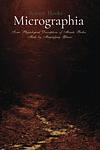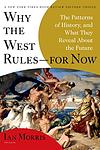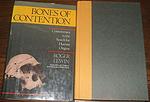The Greatest "History, Science" Books of All Time
Click to learn how this list is calculated.
This list represents a comprehensive and trusted collection of the greatest books. Developed through a specialized algorithm, it brings together 300 'best of' book lists to form a definitive guide to the world's most acclaimed books. For those interested in how these books are chosen, additional details can be found on the rankings page.
Genres
The category of "History" in books refers to the study and interpretation of past events, societies, and cultures. It encompasses a wide range of topics, including political, social, economic, and cultural developments, as well as the lives of individuals and groups who have shaped the course of history. History books can be written from various perspectives and may focus on specific time periods, regions, or themes. They aim to provide readers with a deeper understanding of the past and its impact on the present.
The category of "Science" in books encompasses a wide range of topics related to the natural world, including physics, chemistry, biology, astronomy, and more. These books may explore scientific theories, discoveries, and advancements, as well as the history and philosophy of science. They may also cover practical applications of science, such as technology and medicine. Overall, the Science category offers readers a deeper understanding of the world around them and the scientific principles that govern it.
Countries
Date Range
Reading Statistics
Click the button below to see how many of these books you've read!
Download
If you're interested in downloading this list as a CSV file for use in a spreadsheet application, you can easily do so by clicking the button below. Please note that to ensure a manageable file size and faster download, the CSV will include details for only the first 500 books.
Download-
1. Silent Spring by Rachel Carson
This influential environmental science book presents a detailed and passionate argument against the overuse of pesticides in the mid-20th century. The author meticulously describes the harmful effects of these chemicals on the environment, particularly on birds, hence the metaphor of a 'silent spring' without bird song. The book played a significant role in advancing the global environmental movement and led to a nationwide ban on DDT and other pesticides in the United States.
-
2. Dialogue Concerning the Two Chief World Systems by Galileo
This scientific work presents a series of discussions between three characters, each representing a different perspective on the cosmological theories of the time. Throughout the dialogue, the characters debate the merits of the Ptolemaic geocentric system, which asserts that the Earth is the center of the universe, and the Copernican heliocentric system, which proposes that the Sun is the center. The author uses these discussions to subtly argue in favor of the Copernican system, challenging the traditional religious and scientific beliefs of his time.
-
3. The Making of the Atomic Bomb by Richard Rhodes
This comprehensive book provides an in-depth account of the development of the atomic bomb during World War II. It explores the scientific advancements that made the bomb possible, the political decisions that led to its creation, and the moral dilemmas faced by the scientists involved. The book also details the personalities of key figures in the Manhattan Project, the effects of the bomb on Hiroshima and Nagasaki, and the impact of nuclear weapons on the world.
-
4. Guns, Germs, and Steel by Jared Diamond
The book is a comprehensive exploration of the different trajectories of human societies throughout history. It argues that environmental factors, rather than racial or cultural differences, are the primary reason why some societies developed more advanced technology and political systems. The author uses a multidisciplinary approach, drawing from fields such as geography, evolutionary biology, and linguistics, to support his thesis. The book covers a wide range of topics, including the domestication of plants and animals, the invention of writing, and the spread of diseases.
-
5. The Immortal Life of Henrietta Lacks by Rebecca Skloot
The book tells the story of Henrietta Lacks, a poor African American tobacco farmer whose cells, taken without her knowledge in 1951, became one of the most important tools in medicine, vital for developing the polio vaccine, cloning, gene mapping, and more. Henrietta's cells have been bought and sold by the billions, yet she remains virtually unknown, and her family can't afford health insurance. The book explores the collision between ethics, race, and medicine; of scientific discovery and faith healing; and of a daughter consumed with questions about the mother she never knew.
-
6. Journals by Meriwether Lewis, William Clark
This book is a compilation of the detailed journals kept by two explorers during their expedition across the American West, from 1804 to 1806. The journals provide a first-hand account of their encounters with Native American tribes, their observations of new plant and animal species, and the challenges they faced while traversing uncharted territories. The explorers' writings not only offer insights into their historic journey but also serve as a valuable resource for understanding early 19th-century American history and the country's westward expansion.
-
7. Sapiens: A Brief History of Humankind by Yuval Noah Harari
This book provides a comprehensive exploration of the history of the human species, tracing back from the earliest forms of Homo Sapiens to the modern day. It delves into evolutionary biology, the development of cultures and societies, and the rise of major ideologies and technologies. The book also discusses the future of the species, posing thought-provoking questions about our roles and responsibilities in a rapidly changing world.
-
8. In the Heart of the Sea by Nathaniel Philbrick
This historical narrative tells the true story of the 19th-century whaleship Essex, which was rammed and sunk by a sperm whale in the South Pacific. Stranded thousands of miles from land, the crew of the Essex was pushed to their limits and forced to do the unthinkable to stay alive. The tale explores the harrowing ordeal of these men through their long journey at sea, their encounters with nature's fury, hunger, disease, and their own fear and despair.
-
9. Rising Tide by John Barry
"Rising Tide" is a historical account that explores the impact of the Great Mississippi Flood of 1927 on American society. The narrative details the catastrophic event and the subsequent political and social changes that occurred, including the shift in African American voting patterns from the Republican to the Democratic party. The book also delves into the engineering efforts to control the Mississippi River and the environmental consequences of such efforts.
-
10. Micrographia by Robert Hooke
This seminal work from the 17th century is renowned for its detailed and pioneering illustrations of the microscopic world. The author, using one of the earliest compound microscopes, meticulously documented his observations of a previously unseen universe, ranging from the structure of snowflakes and the anatomy of insects to the crystalline forms of minerals and the cellular patterns of plants. The book not only captured the public's imagination with its intricate engravings but also laid the groundwork for the field of microscopy and significantly advanced the scientific community's understanding of biology and the nature of matter.
-
11. The Rise And Fall Of The Third Chimpanzee by Jared Diamond
"The Rise and Fall of the Third Chimpanzee" explores the fascinating similarities and differences between humans and our closest living relatives, the chimpanzees. Jared Diamond delves into the evolutionary history of Homo sapiens, examining our complex behaviors, language, art, and technology. He also addresses the darker aspects of human nature, such as violence and environmental destruction, and raises thought-provoking questions about our future as a species. Through a captivating blend of science, anthropology, and history, Diamond offers a compelling exploration of what it means to be human and the challenges we face in our quest for survival.
-
12. Under A Lucky Star by Roy Chapman Andrews
"Under A Lucky Star" is the autobiography of a renowned naturalist and explorer, chronicling his thrilling adventures and groundbreaking expeditions across the globe. The narrative captures his early passion for the natural world, his rise to fame as a leader in the field of paleontology, and his most famous exploits in the Gobi Desert, where he made unprecedented dinosaur discoveries. His story is not only a testament to personal courage and determination but also a vivid account of the scientific spirit and curiosity that drove early 20th-century exploration, laying the foundations for our understanding of the prehistoric past.
-
13. Midnight In Chernobyl by Adam Higginbotham
"Midnight In Chernobyl" is a non-fiction book that tells the story of the 1986 Chernobyl nuclear disaster. The book provides a detailed account of the events leading up to the explosion, the immediate aftermath, and the long-term effects of the disaster. It also explores the political and social context of Soviet Ukraine at the time, and the impact that the disaster had on the country and the world. The book draws on interviews with survivors, officials, and experts, as well as archival documents and scientific research, to provide a comprehensive and compelling narrative of one of the worst nuclear accidents in history.
-
14. The Influence of Sea Power Upon History, 1660-1783 by Alfred Thayer Mahan
This book is a comprehensive examination of the importance of naval warfare in the period between 1660 and 1783. The author argues that sea power was a crucial factor in determining the outcomes of historical events during this period, including the rise and fall of empires and the outcomes of wars. The book provides detailed analyses of major naval battles, strategies, and technologies, as well as the economic and political factors that influenced the development of naval power. It is considered a seminal work in the field of naval history and strategy.
-
15. Wonderful Life: The Burgess Shale And The Nature Of History by Stephen Jay Gould
"Wonderful Life: The Burgess Shale And The Nature Of History" explores the fascinating Burgess Shale fossil site in Canada and its profound impact on our understanding of evolution. Stephen Jay Gould delves into the diverse and bizarre creatures that once inhabited this ancient ecosystem, highlighting their significance in challenging traditional views of the evolutionary process. Through vivid storytelling and scientific analysis, Gould presents a thought-provoking argument that the history of life is contingent and unpredictable, emphasizing the importance of contingency in shaping the course of evolution.
-
16. The Invention Of Nature: Alexander Von Humboldt’s New World by Andrea Wulf
"The Invention of Nature" is a biographical account of Alexander von Humboldt, a 19th-century explorer, scientist, and naturalist who revolutionized the way we understand the natural world. Andrea Wulf chronicles Humboldt's travels across South America, his encounters with indigenous peoples, and his groundbreaking scientific discoveries that challenged prevailing notions of the natural world. Humboldt's ideas about interconnectedness and the unity of nature were ahead of their time and continue to influence environmentalism and conservation today. Wulf's book is a masterful exploration of one of history's most fascinating and influential figures.
-
17. Why the West Rules - For Now: The Patterns of History, and What They Reveal About the Future by Ian Morris
This book is a comprehensive exploration of the historical and cultural patterns that have led to Western dominance in the world. The author uses a broad range of evidence from archaeology, genetics, and linguistics to trace the development of East and West from prehistoric times to the present, arguing that physical geography, rather than culture, religion, or great men, is the primary driving force behind the rise of the West. The book also offers a forecast for the future, predicting a shift in global power from the West to the East.
-
18. Through the Language Glass: Why the World Looks Different in Other Languages by Guy Deutscher
This book explores the link between language and perception, challenging the conventional belief that languages are only tools for describing reality and do not influence the way we perceive the world. The author delves into how different languages can shape the way their speakers understand and interact with their surroundings, arguing that linguistic differences can significantly impact cognition and perception. The book combines linguistic analysis, cultural history, and cognitive science to provide a fascinating examination of how our mother tongue can affect our cognitive processes, including color perception and spatial orientation.
-
19. Collapse by Jared Diamond
"Collapse" is an exploration of why certain societies throughout history have thrived while others have deteriorated and collapsed. The book delves into environmental problems, climate change, rapid population growth, and unwise political decisions as factors that contribute to the downfall of a civilization. The author uses examples from history such as the Mayans, the Vikings in Greenland, and modern examples like Rwanda and Haiti, to illustrate his points. It serves as both a historical analysis and a warning for modern societies to learn from the past in order to avoid a similar fate.
-
20. The Exploration of the Colorado River by John Wesley Powell
This book is a firsthand account of the first U.S. government-sponsored passage through the Grand Canyon. The author, a one-armed Civil War veteran, and his team of nine men risked their lives to accomplish this feat in 1869. They faced dangerous rapids, food shortages, and potential attacks from Native American tribes. The narrative provides detailed descriptions of the geography, geology, and Native American inhabitants of the region, offering invaluable insights into the uncharted territory of the American West.
-
21. Medical Apartheid by Harriet A. Washington
This book is a comprehensive history of medical experimentation on African Americans from the era of slavery to the present day. It investigates the racial disparities in healthcare and delves into the dark history of unethical and often deadly experiments conducted on black people in the United States. The author explores the roots of these practices, their implications, and the ongoing struggle for racial equality in the healthcare system.
-
22. Bones Of Contention: Controversies In The Search For Human Origins by Roger Lewin
"Bones of Contention: Controversies in the Search for Human Origins" delves into the complex world of paleoanthropology, exploring the heated debates and conflicting theories surrounding the study of human evolution. Through a meticulous examination of fossil discoveries, scientific methodologies, and the personalities involved, the book sheds light on the ongoing quest to unravel the mysteries of our ancient past. With a balanced and engaging approach, the author navigates through the controversies, providing readers with a captivating exploration of the ever-evolving field of human origins.
-
23. Mapping The Deep by Robert Kunzig
"Mapping The Deep" explores the mysterious and awe-inspiring world beneath the ocean's surface. Through captivating storytelling and scientific research, the book delves into the history of deep-sea exploration, revealing the incredible discoveries and challenges faced by scientists and explorers. From the eerie abyssal plains to the vibrant ecosystems of hydrothermal vents, the author takes readers on a journey to understand the profound impact of the deep sea on our planet and the potential it holds for future exploration and understanding.
Reading Statistics
Click the button below to see how many of these books you've read!
Download
If you're interested in downloading this list as a CSV file for use in a spreadsheet application, you can easily do so by clicking the button below. Please note that to ensure a manageable file size and faster download, the CSV will include details for only the first 500 books.
Download





















